How Sri Lankan parliament descended into violence
Lawmakers brawl as anger grows over ousting of democratically elected leader last month
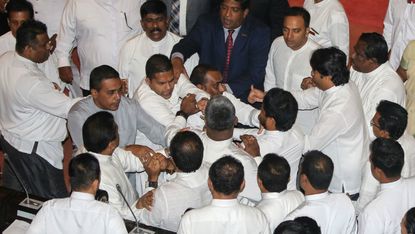
The parliament of Sri Lanka descended into violent chaos today, with MPs punching and kicking each other in an eruption of anger over the country’s ongoing constitutional crisis.
In late October, democratically elected prime minister Ranil Wickremesinghe was removed from office by President Maithripala Sirisena and replaced with Mahinda Rajapaksa, whom Bloomberg describes as a “pro-China strongman”.
Sirisena also dismissed Wickremesinghe’s cabinet and suspended parliament, the BBC adds.
Subscribe to The Week
Escape your echo chamber. Get the facts behind the news, plus analysis from multiple perspectives.

Sign up for The Week's Free Newsletters
From our morning news briefing to a weekly Good News Newsletter, get the best of The Week delivered directly to your inbox.
From our morning news briefing to a weekly Good News Newsletter, get the best of The Week delivered directly to your inbox.
Rajapaksa, who served as president from 2005 to 2015, has long been a controversial figure in the country. In 2009 he brought an end to Sri Lanka’s 26-year civil war through a military operation that “killed up to 40,000 ethnic Tamil civilians”, Al Jazeera reports. His government was also accused of murdering political opponents and of widespread corruption.
Meanwhile, Wickremesinghe, who has been PM since 2015, has refused to step down to make way for Rajapaksa, leading to divisions in parliament.
On Tuesday, the Supreme Court suspended Sirisena’s order to dissolve parliament and hold snap elections. The following day, a no-confidence motion against Rajapaksa passed with the backing of 122 MPs in the 225-member legislature.
As parliament reconvened today for the first time since the suspension, Speaker Karu Jayasuriya told the chamber that the country had “no government” and “no prime minister” - a declaration that kick-started the brawl.
According to ABC News, more than three dozen politicians fought and some who fell on the floor were “kicked by rivals”. One Rajapaksa loyalist was “cut as he tried to take the speaker’s microphone, bloodying his shirt”, adds The Guardian.
Harsha de Silva, an MP from Wickremesinghe’s United National party, said the violence marked “the most shameful day in parliament”.
The assembly has now been adjourned until Friday afternoon.
As Al Jazeera’s Bernard Smith concludes: “It is difficult to say who is in charge in Sri Lanka. Now we are left with a power vacuum.”
Create an account with the same email registered to your subscription to unlock access.
Sign up for Today's Best Articles in your inbox
A free daily email with the biggest news stories of the day – and the best features from TheWeek.com
-
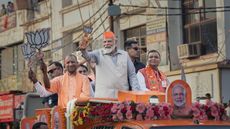 India elections start amid violence, hate speech accusations
India elections start amid violence, hate speech accusationsTalking Points Narendra Modi seeks a third term while critics worry about the future of the country's democracy
By Joel Mathis, The Week US Published
-
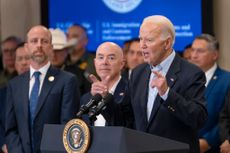 'Biden is smart to keep the border-security pressure on'
'Biden is smart to keep the border-security pressure on'Instant Opinion Opinion, comment and editorials of the day
By Harold Maass, The Week US Published
-
 Bird flu worries mount as virus found in milk, cows
Bird flu worries mount as virus found in milk, cowsSpeed Read The FDA found traces of the virus in pasteurized grocery store milk
By Peter Weber, The Week US Published
-
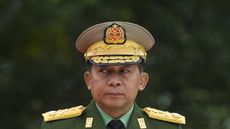 Myanmar: the Spring Revolution and the downfall of the generals
Myanmar: the Spring Revolution and the downfall of the generalsTalking Point An armed protest movement has swept across the country since the elected government of Aung San Suu Kyi was overthrown in 2021
By The Week Staff Published
-
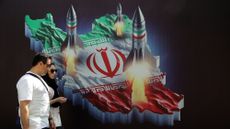 Israel hits Iran with retaliatory airstrike
Israel hits Iran with retaliatory airstrikeSpeed Read The attack comes after Iran's drone and missile barrage last weekend
By Peter Weber, The Week US Published
-
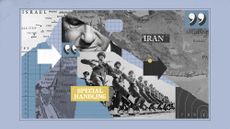 Is there a peaceful way forward for Israel and Iran?
Is there a peaceful way forward for Israel and Iran?Today's Big Question Tehran has initially sought to downplay the latest Israeli missile strike on its territory
By Sorcha Bradley, The Week UK Published
-
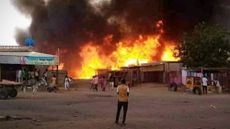 Sudan on brink of collapse after a year of war
Sudan on brink of collapse after a year of warSpeed Read 18 million people face famine as the country continues its bloody downward spiral
By Peter Weber, The Week US Published
-
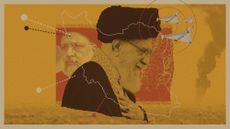 How powerful is Iran?
How powerful is Iran?Today's big question Islamic republic is facing domestic dissent and 'economic peril' but has a vast military, dangerous allies and a nuclear threat
By Harriet Marsden, The Week UK Published
-
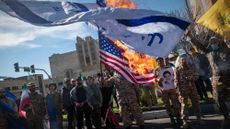 US, Israel brace for Iran retaliatory strikes
US, Israel brace for Iran retaliatory strikesSpeed Read An Iranian attack on Israel is believed to be imminent
By Peter Weber, The Week US Published
-
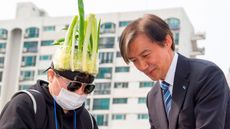 How green onions could swing South Korea's election
How green onions could swing South Korea's electionThe Explainer Country's president has fallen foul of the oldest trick in the campaign book, not knowing the price of groceries
By Sorcha Bradley, The Week UK Published
-
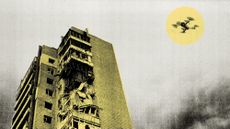 Ukraine's battle to save Kharkiv from Putin's drones
Ukraine's battle to save Kharkiv from Putin's dronesThe Explainer Country's second-largest city has been under almost daily attacks since February amid claims Russia wants to make it uninhabitable
By Sorcha Bradley, The Week UK Published